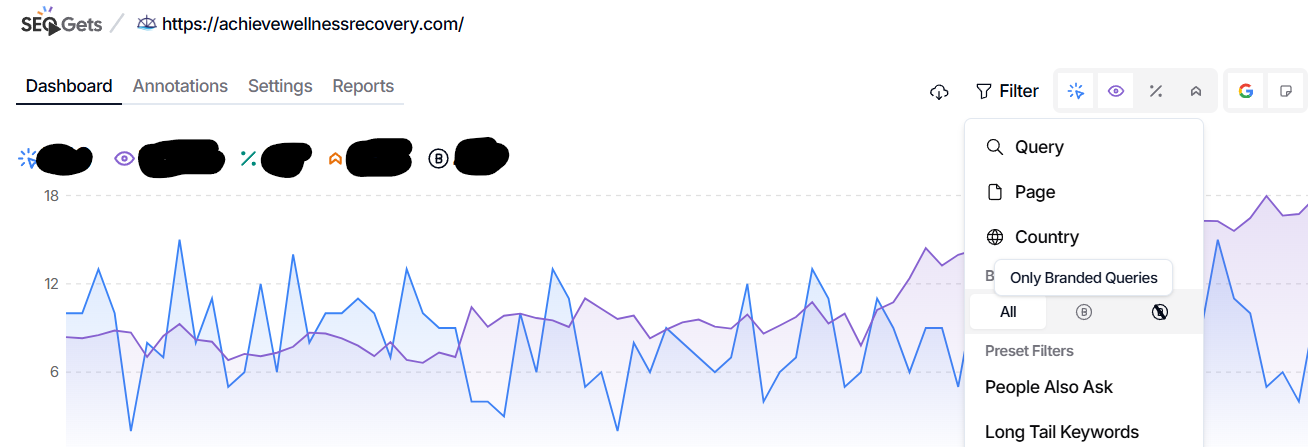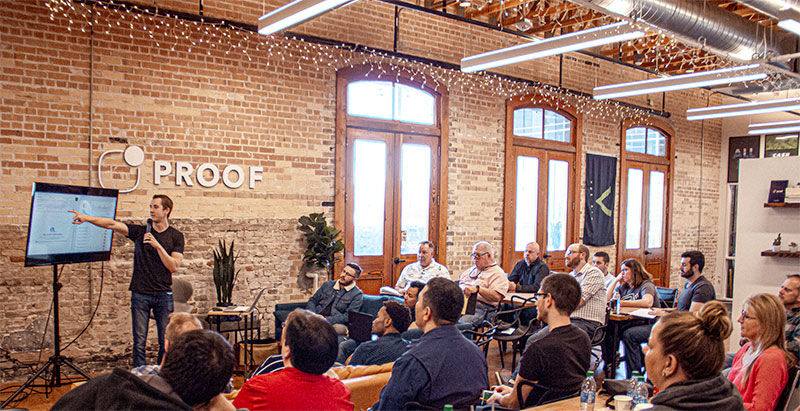In three recent SEO podcast interviews, the importance of creating and maintaining the a digital reflection of your startup’s brand value has been deeply reinforced as a core element in your company’s ability to succeed in gaining the “organic traffic” that normally is associated with investing time and resources into SEO campaigns.
Your Brand Represents Market Share
When I interviewed Shannon Lavenia, of BrandBuilder Ai, we talked about how often the focus of an SEO campaign starts out by giving the advice for you to add a filter to your Google Search Console, and removing any “branded queries”, so that you can identify what part of search volume Google is sending to your site of new customers unfamiliar with your brand.
While that is definitely still best practices, there’s a growing number of number of SEOs who are recognizing and advocating a better understanding of the role of brand when it comes to SEO.
“Your brand is what you’re uniquely known for. If you have people walking around saying your company name, you know that you own some of your market share.”
The first part of this is understanding how you bring value to customers through your brand, by embracing great customer service, or differentiating yourself in the market place as “the one who answers on the first ring”, or the roofer who has “quick easy job estimates”. Whatver you can do in your specific market and niche to have a unique selling point.
However, this means that it’s important to know how GOOGLE understands and attributes “branded queries” to your business.

You can use tools like SEO Gets to look at your Google Search Console data *with a grain of salt*, to look at the not just the unbranded queries, but see how your rehab shows up WITH branded queries. Are they coupled with questions about location, IOP, specific services you’re promoting or is there no indication your brand is “co-searched” for related terms? That’s part of branding, and is more important because social platforms like Instagram don’t usually help users “click”, instead a separate branded search happens after they see your Reel.
“SEO has evolved from a technical backroom operation to a holistic brand-building effort. When your customers start typing your company name instead of your service category into Google, that’s not just a branded search – it’s a measure of your market share. Modern SEO isn’t just about ranking for keywords; it’s about becoming the name people remember and recommend.” – Matt Brooks of SEOteric
Your “brand” is part of Google’s “Knowledge Graph” system of Entities
I also spoke to Callie Scott of Blue Orchid digital who is an expert who had a great insight into how Google looks at “entities” in Google, and how they create a picture of relevant businesses who are authorities or are businesses relevant to a topic.
“If they have enough faith in their own system to say, here’s this SaaS product, we know that they do this. We know this with enough confidence that we’re going to throw this up on our cert… I think that’s as close as we’re going to get to a signal from Google that they actually know who you are, what your expertise is, and that you’re an authority in that niche.”What kind of information would Google realistically trust and use for something that can be so easily faked on a website? You know, just throwing up an author bio and saying, I’m an expert on this. It’s not something I think Google is actually going to trust.”
So his argument is that when Google displays a knowledge panel, it represents a higher level of confidence from Google about the entity’s authenticity and authority, compared to self-claimed expertise on websites.
Claim Your “Knowledge Panel” with these specific steps

In my interview founder of Blue Orchid Callum Scott outlined the CONCRETE specific steps to properly claim a knoweldge panel:
- “The first is to build what we’d call an entity home. So that is a page on the web that is the authority on that subject. Ideally, we’re going to want this to be an about page on your own website.”
- “The next step is to optimize that page. Make sure you have every bit of information on there about what you do, who you are, and then links to all your offsite, what we’d call corroboration. […] you can go and optimize all of them. So we’re talking about LinkedIn pages, crunch-based, your social profiles, all this kind of stuff, article mentions of you, guest post bios.”
- “The last step is we mark it all up with appropriate structured data or schema markup just on that about page. So we’re going to be linking in everything from same as where we’re going to link to all those corroborating sources.”
- “Realistically, we found this takes 10 to 12 months, regardless of the entity, to get the knowledge panel up there if you take the right steps.”
So let’s make an actionable example: Cabo Luxury would want to review to make sure they have a thorough “About” page, that matches the type of “company details” they should then work to get verified on 3rd party sites. That’s directory listings, that’s having consistent information about the founders in their interviews, that’s making sure that the CEO even has a Linkedin page, that the story about their resort includes the same or similar mission statement. All of those items are also part of establishing a brand in general. Then using a schema generator tool or adding a WordPress plugin to handle schema.




